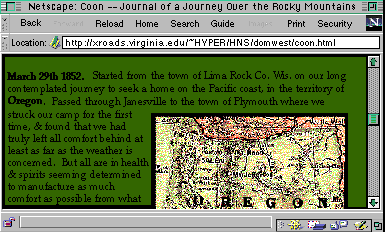More Answers
was that
question
again?
Remember, the .edu suffix means the computer belongs to an educational institution (the University of California at Berkeley).
The .com suffix means the computer belongs to a company (like the oil company Chevron).
The computer here belongs to a company (Messagenet) that sells space on the Internet, which means the site's information comes from whoever bought space from this company to store a web site.
The .org suffix means the computer belongs to a nonprofit organization. The uk indicates that this organization is somewhere in the United Kingdom.
Recall the earlier example:

![[hand of God]](cistine.gif)
Can you tell what kind of information this site contains?
Check your answer.
Sections
![[Identify the Source]](ID_off.gif)
![[Evaluate the Validity]](EV_on.gif)
![[Find the Audience]](FI_on.gif)
